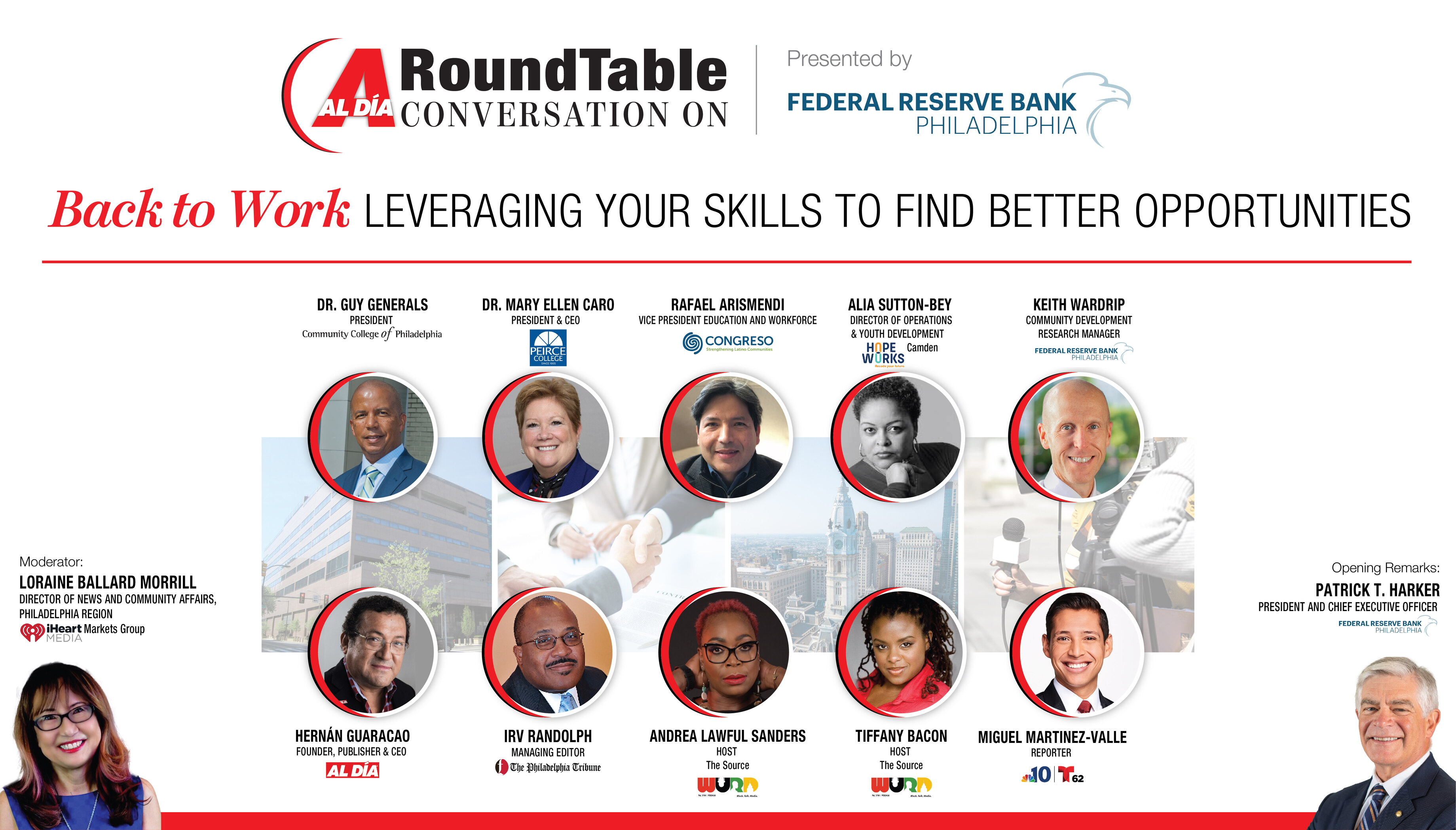
The keys to leveraging work skills for better job opportunities
The ongoing COVID-19 pandemic has impacted just about every aspect of our daily lives.
Beyond a personal lens, the pandemic has drastically impacted the economy at-large, and exacerbated many of the disparities that exist for workers of color.
According to recent research by the Federal Reserve Bank of Philadelphia and others, Black and Hispanic workers have borne the weight of the economic crisis brought on by the pandemic, having seen a disproportionate rate of job losses and wage reductions.
As of Dec. 2020, in the state of Pennsylvania, the Black unemployment rate was 17.2%, while the White unemployment rate was 7.8%. Nationally, the Black unemployment rate stands at 9.2%, whereas the White unemployment rate is 5.7%. For Latinos, the unemployment rate is at 8.6%. The pandemic has also severely impacted women workers, as nearly 3 million women have dropped out of the formal labor force in the past year.
These numbers have been an alarming trend for decades, long preceding the current pandemic.
“We know that it’s not just a skills gap that’s holding many people back, but an opportunity gap as well,” said Patrick Harker, President of the Federal Reserve Bank of Philadelphia.
As a way to help workers and potential employers transition into family-sustaining careers, the Federal Reserve Bank created the Occupational Mobility Explorer, a tool designed to get workers to potentially higher-paying job opportunities.
With the Occupational Mobility Explorer, employees are able to find an industry in which their existing skills will be able to be transferred into another career path.
Keith Wardrip, Community Development Research Manager at the Federal Reserve Bank of Philadelphia, published a research brief in January that focused on employment levels across the tri-state area to better understand which workers were most heavily impacted by the pandemic.
His research found that the three most heavily impacted groups were Black men, Black women and Hispanic women, and in particular, individuals in those groups without a high school diploma.
Similarly, another report from a colleague indicated that of the 10 occupations most drastically impacted by the pandemic, Black and Hispanic workers were overrepresented in six of those occupations.
“Skills are often talked about as a gap, but our research suggests that skills can be considered a bridge,” said Wardrip.
According to the Federal Reserve Bank of San Francisco, the economic loss as a result of racial and gender disparities in the U.S. labor market stands at $2.6 trillion.
The disproportionate rate of economic recovery for women and people of color has often been rooted in structural barriers, job segregation, inequality in education and discrimination.
“If we can solve this problem, we can benefit everyone,” said Harker.
CONTENIDO RELACIONADO
“I think it’s imperative that in striving to redress our country’s stark inequities, we focus on root and branch reform rather than quick fixes,” he added.
Numerous colleges and universities across the state have worked to expand resources for students amid the pandemic.
From moving entirely to virtual education, to developing critical skills needed to enter the job market, the pandemic has added an additional layer of difficulty for students in college and alumni that have recently graduated.
After hearing from employers about some specific skills that many of them are looking for in their workers, Peirce College created a program that allows students to garner the skills that many jobs within their industry requires and earn up to 20 credits while doing so.
“We’ll be introducing this in addition to our degree programs,” said Dr. Mary Ellen Caro, president & CEO of Peirce College. “That’s how we’re working with employers to try to help, in particular, this population segment, get back to work or improve their working condition to find sustainable wages.”
The Community College of Philadelphia also has resources that have helped students and graduates enter the workforce during the pandemic.
One of the most prominent ones is Career Readiness Soft Skills Pre-Apprenticeship Program, which prepares participants for entry into the workforce, registered apprenticeship programs and further education within a number of career fields.
“We pick an underlying theme in everything we do, it’s to enable students to find a pathway towards a more prosperous future for themselves,” said Dr. Donald Guy Generals, president & CEO of the Community College of Philadelphia.
When it comes to finding job opportunities and better pay opportunities, skills are often the most important factor in finding the right career.










DEJE UN COMENTARIO: